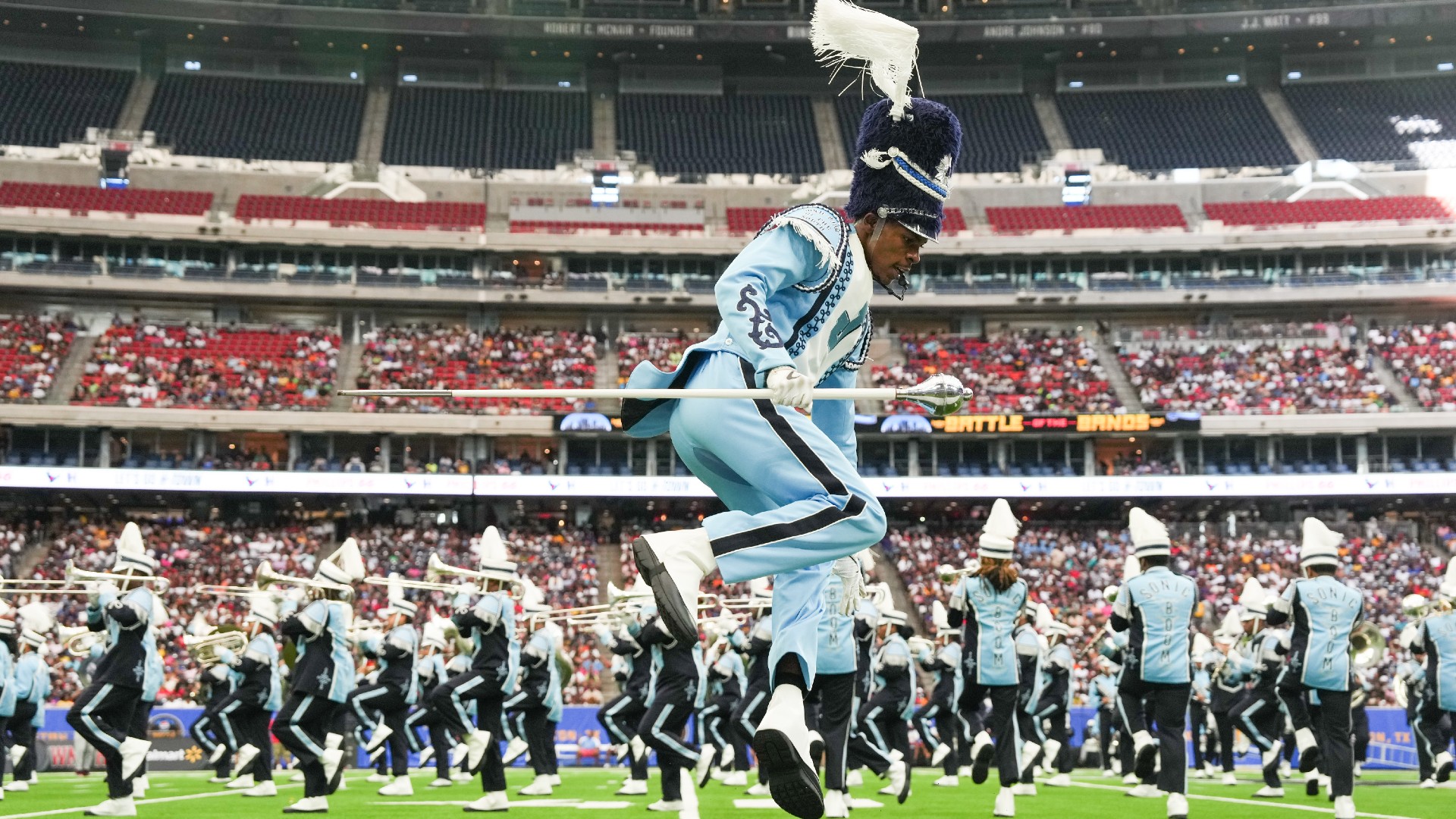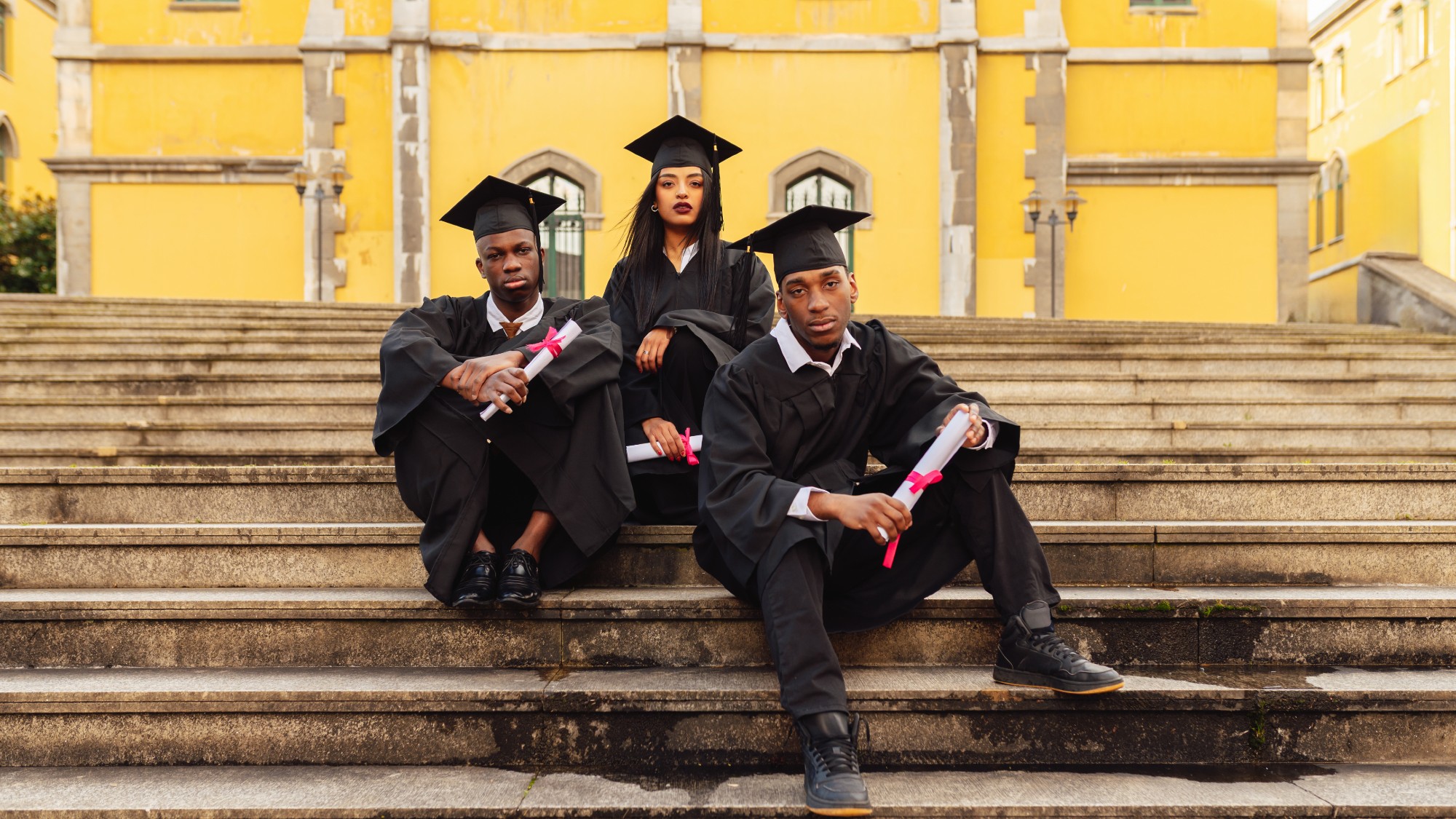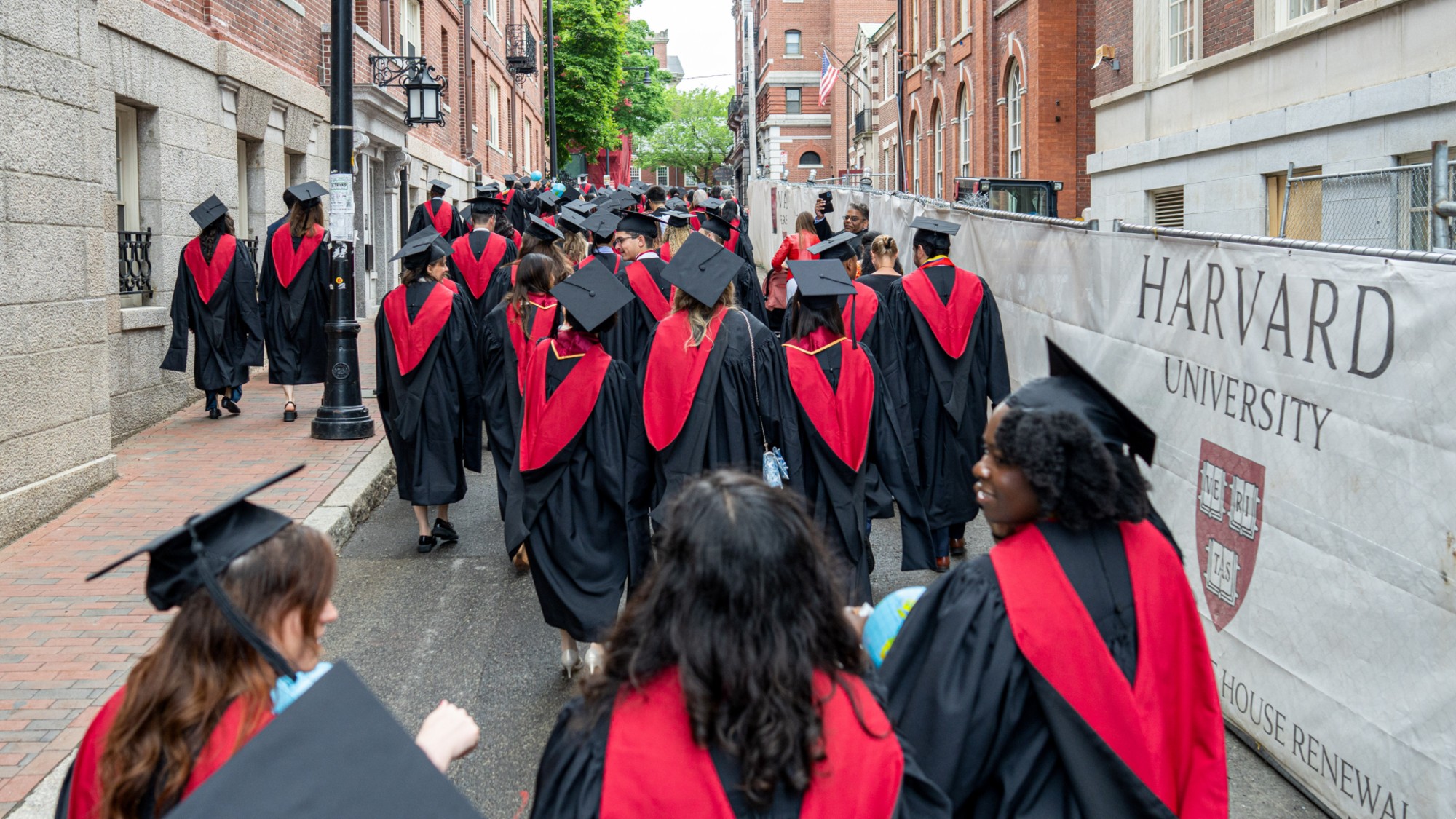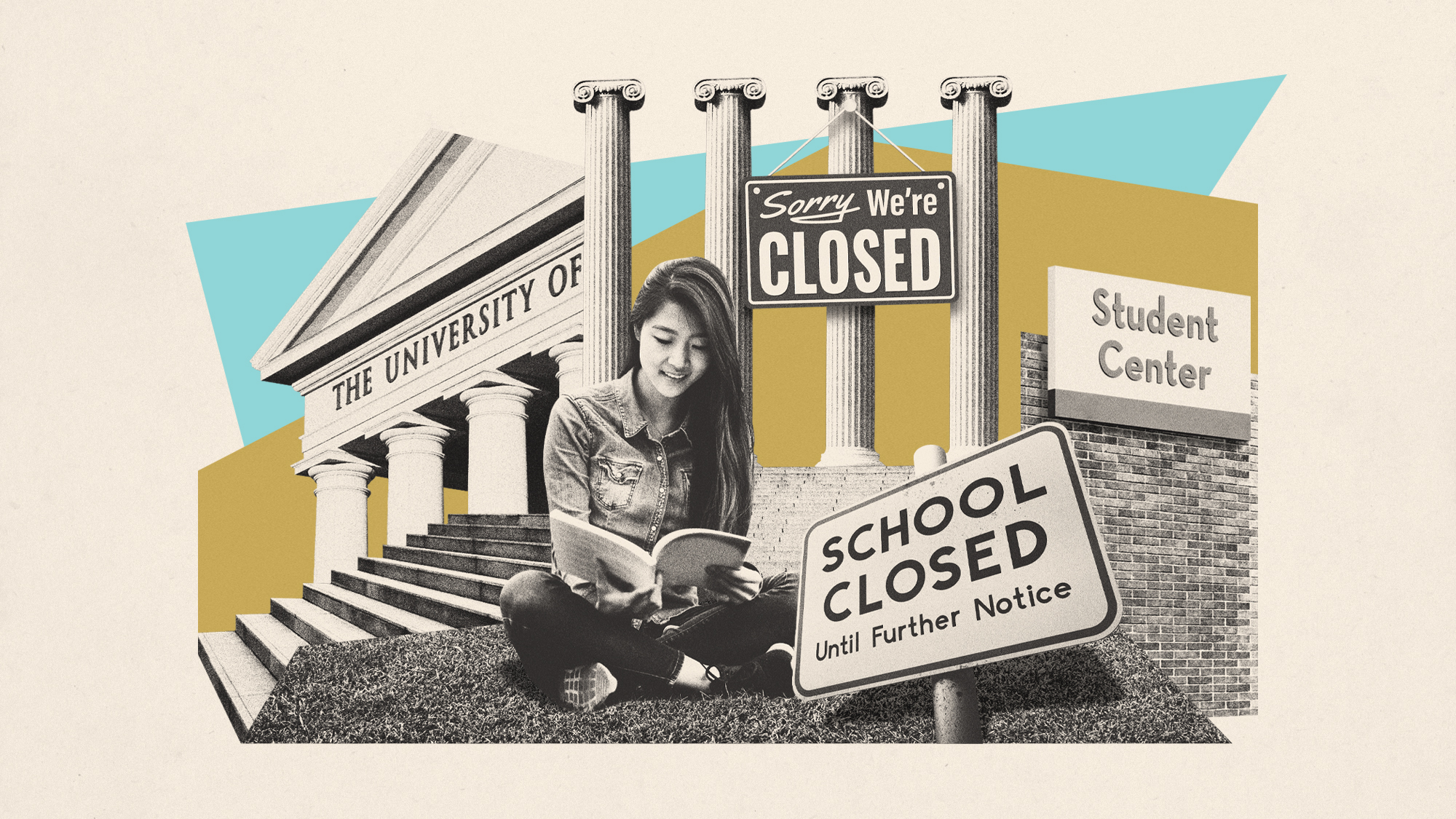The history and impact of HBCUs
Schools have long been desegregated, but historically Black colleges and universities are still filling a need in the United States


A free daily email with the biggest news stories of the day – and the best features from TheWeek.com
You are now subscribed
Your newsletter sign-up was successful
Historically Black colleges and universities (HBCUs) have long been a bastion for upward mobility and a port in the storm for Black Americans seeking a place in academia. Before the United States fully integrated schools, the majority of Black students earned their degrees from HBCUs, but those numbers have dwindled over time. Now, the nation's 107 HBCUs are in the spotlight as enrollment surges and Vice President Kamala Harris, a Howard University grad, runs for president.
The origin of HBCUs
Before the Civil War, educating Black Americans was discouraged in many places in the North and wholly banned across much of the South. "The provision of education for people of African descent in early America was recognized by some as unnecessary and criminal, while others saw it as essential and vital," the Thurgood Marshall College Fund (TMCF) said.
The first couple of HBCUs were established before the war while slavery was still thriving. Richard Humphreys created the Institute for Colored Youth, briefly known as the African Institute at its founding, on a farm outside Philadelphia in 1837. It is the oldest HBCU in the country. Now known as Cheyney University, the school's mission was to arm free African Americans with primary education and training to become teachers or tradespeople. Close by, the Ashmun Institute provided theological training and a basic education from its founding in 1854. It was renamed Lincoln University in 1866 in honor of President Abraham Lincoln.
The Week
Escape your echo chamber. Get the facts behind the news, plus analysis from multiple perspectives.

Sign up for The Week's Free Newsletters
From our morning news briefing to a weekly Good News Newsletter, get the best of The Week delivered directly to your inbox.
From our morning news briefing to a weekly Good News Newsletter, get the best of The Week delivered directly to your inbox.
During the 1850s, two other HBCUs were founded: Miner Normal School (1851) in Washington, D.C., and Wilberforce University (1856) in Ohio. The African Methodist Episcopal Church established Wilberforce, making it the first HBCU operated by African Americans. The vast majority of HBCUs were established between 1865 to 1900, thanks to the help of the Freedmen's Bureau, "with the greatest number of HBCUs started in 1867, two years after the Emancipation Proclamation," said the TMCF. That year, Alabama State University, Barber-Scotia College, Fayetteville State University, Howard University, Johnson C. Smith University, Morehouse College, Morgan State University, Saint Augustine's University and Talladega College were established.
Over the next century, dozens of HBCUs were established throughout the country. In Title III of the Higher Education Act of 1965, Congress officially defined an HBCU as an accredited institution established before 1964 with the principal mission of providing an education for Black Americans.
'Engines of upward mobility'
HBCUs have spent 180 years establishing themselves as "engines of upward mobility for students who, due to systemic racism and discrimination, had limited access to other higher education options," the White House Council of Economic Advisers said in a brief on The Economics of HBCUs. Despite representing only 3% of colleges and universities, HBCUs play a massive role in the cultivation of the Black middle class, producing 40% of all Black engineers, 50% of all Black teachers, 70% of Black doctors and dentists and 80% of Black judges.
They also enroll twice as many Pell Grant-eligible students as non-HBCU institutions, per the World Economic Forum, creating opportunities for people from low-income communities. HBCU graduates are 51% more likely to "move into a higher-income quintile than graduates of non-HBCUs."
A free daily email with the biggest news stories of the day – and the best features from TheWeek.com
For more than a century, HBCUs have produced many prominent graduates, many of whom have made history. Thurgood Marshall, the first Black Supreme Court Justice, attended Lincoln University and Howard University Law School. Fellow Bison Kamala Harris, who graduated from Howard in 1986, was the first HBCU grad to be elected Vice President and is now the first to lead a major party ticket for the presidential election. The long list of successful HBCU alum also includes writers Langston Hughes, Zora Neale Hurston and Toni Morrison, NFL hall of famer Jerry Rice, multi-hyphenate billionaire Oprah Winfrey and the Tuskegee Airmen.
The role that HBCUs have played in "producing social movements and reshaping the contours of American democracy" is "among their most important contributions," said the National Museum of African American History and Culture. From their inception, HBCUs have trained and empowered future leaders to "transform their respective communities through the embrace of race consciousness that refuted white supremacy and the adoption of cultural nationalist impulses."
This led to a generation of Black leaders "who used talents honed in these crucial spaces to champion the causes of Black liberation." HBCUs became "epicenters" of the growing dissent within the Black community during the Jim Crow era. HBCU students and alums such as Ella Baker and Dr. Martin Luther King Jr played a significant role in mobilizing the Civil Rights Movement. They also "birthed one of the most important civil rights organizations in American history," the Student Non-Violent Coordinating Committee.
HBCUs in the 21st century
While some might question the necessity of HBCUs since the desegregation of the school system, interest in the institutions has spiked in recent years. As the number of undergraduate college students in the U.S. dropped during the pandemic, HBCUs saw a historic enrollment increase. Some HBCUs, like Baltimore's Morgan State University, reported up to a 30% increase in applications between 2018 and 2021. The trend has continued over the past few admissions cycles.
Howard University saw a 12% increase in applications for their incoming freshman class this year, receiving 37,000 applications for only 2,500 seats, according to Forbes. Likewise, applications to Florida A&M University (FAMU) have nearly doubled in the last two years. The Tallahassee-based school received over 21,000 applications for less than 4,000 seats. This is a sharp turnaround from a decade ago when the share of Black college students attending HBCUs fell to a low of 8%.
Applications to HBCUs first jumped in the wake of the May 2020 death of George Floyd at the hands of Minneapolis police. The Supreme Court's June 2023 decision to dismantle affirmative action and the "rapid dismantling of Diversity, Equity, and Inclusion (DEI) policies at state universities in 23 states appear to be giving HBCUs a further boost," said Forbes. The surge in interest can also be attributed to heightened media attention and backing from celebrity donors, Dr. William E. Hudson, the vice president of Student Affairs at FAMU, said to Forbes. "With influential figures showcasing the success of HBCUs, it's no surprise that students are drawn in."
An uptick in funding from both billionaire donors and the government has accompanied the rising enrollment. In January, billionaire Ronda Stryker and her husband William Johnston donated $100 million to Spelman University in Atlanta, which the school described as the single largest donation ever to an individual HBCU. Regarding federal aid, the Biden Administration said it invested a record $16 billion in HBCUs between the 2021 and 2024 fiscal years, including $4 billion in Covid relief legislation and $4 billion in financial aid for HBCU students who qualify for Pell Grants.
In a climate where racial politics seem to clash with academics, there is a "growing recognition of the unique cultural and educational experience that HBCUs offer," said Jennifer Price, the vice president of enrollment management at Edward Waters University in Jacksonville, Florida. They provide a nurturing environment "where students can thrive academically and personally, surrounded by peers, staff and faculty who understand their backgrounds and experiences."
Theara Coleman has worked as a staff writer at The Week since September 2022. She frequently writes about technology, education, literature and general news. She was previously a contributing writer and assistant editor at Honeysuckle Magazine, where she covered racial politics and cannabis industry news.
-
 How the FCC’s ‘equal time’ rule works
How the FCC’s ‘equal time’ rule worksIn the Spotlight The law is at the heart of the Colbert-CBS conflict
-
 What is the endgame in the DHS shutdown?
What is the endgame in the DHS shutdown?Today’s Big Question Democrats want to rein in ICE’s immigration crackdown
-
 ‘Poor time management isn’t just an inconvenience’
‘Poor time management isn’t just an inconvenience’Instant Opinion Opinion, comment and editorials of the day
-
 American universities are losing ground to their foreign counterparts
American universities are losing ground to their foreign counterpartsThe Explainer While Harvard is still near the top, other colleges have slipped
-
 Education: More Americans say college isn’t worth it
Education: More Americans say college isn’t worth itfeature College is costly and job prospects are vanishing
-
 Penn wipes trans swimmer records in deal with Trump
Penn wipes trans swimmer records in deal with Trumpspeed read The University of Pennsylvania will bar transgender students from its women's sports teams and retroactively strip a trans female swimmer of her titles
-
 Colleges are canceling affinity graduations amid DEI attacks but students are pressing on
Colleges are canceling affinity graduations amid DEI attacks but students are pressing onIn the Spotlight The commencement at Harvard University was in the news, but other colleges are also taking action
-
 Why college students are struggling to read full books
Why college students are struggling to read full booksUnder the Radar Is reading full books a thing of the past for students?
-
 Anti-Israel protests impact a Jewish-rooted university
Anti-Israel protests impact a Jewish-rooted universityThe Explainer The president of Brandeis University resigned as a result of multiple factors, including his handling of recent protests
-
 Why are so many colleges closing?
Why are so many colleges closing?Today's Big Question 'Enrollment cliffs' and higher tuition both play a role
-
 Intelligence service: how schools are managing AI
Intelligence service: how schools are managing AIIn Depth Machine-thinking has the potential to create a paradigm shift in education but the change and challenges are huge
